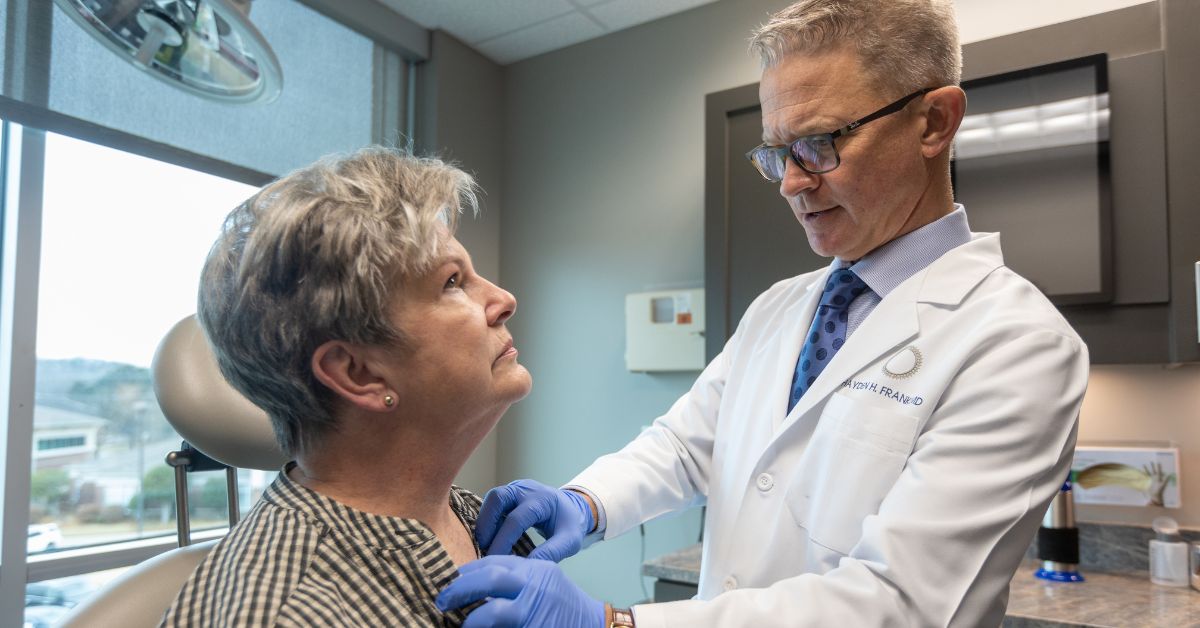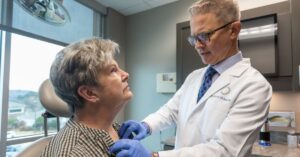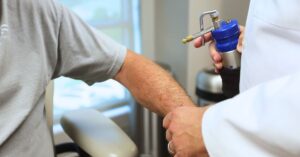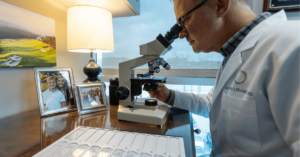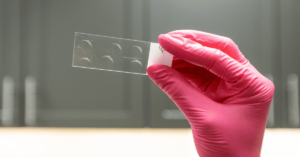Skin Cancer Treatment: Diagnosis, Options and Prevention
Expert Care for Effective Skin Cancer Treatment
Skin cancer is the most common type of cancer worldwide, but with early detection and proper treatment, it is highly manageable. Whether you’ve been diagnosed with basal cell carcinoma (BCC), squamous cell carcinoma (SCC), or melanoma, understanding your treatment options is crucial.
Franks Dermatology
Advanced skin cancer treatments
At Franks Dermatology in Little Rock, we take skin cancer seriously. And we offer skin cancer treatment tailored to each patient's needs.
Skin Cancer Treatment Guide Table of Contents
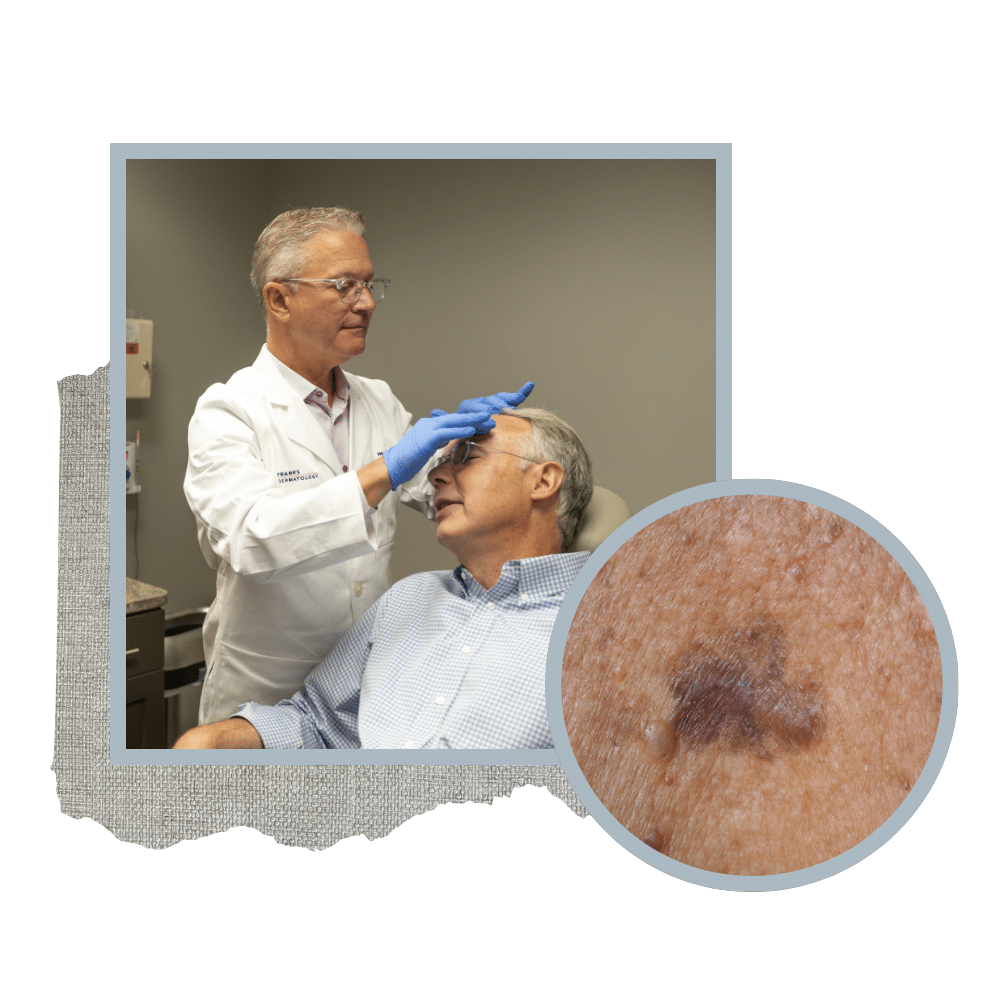
"Dr. Franks is the best! He has treated my skin cancers and precancerous spots for numerous years. He is very thorough, proactive, and friendly!" - Ann West, Little Rock, AR
What is Skin Cancer?
Understanding skin cancer
Skin cancer occurs when abnormal skin cells multiply uncontrollably, often due to prolonged exposure to UV radiation from the sun or tanning beds.
Below we discuss types of skin cancer and treatments.
Early treatment can be critical for many types of skin cancer.
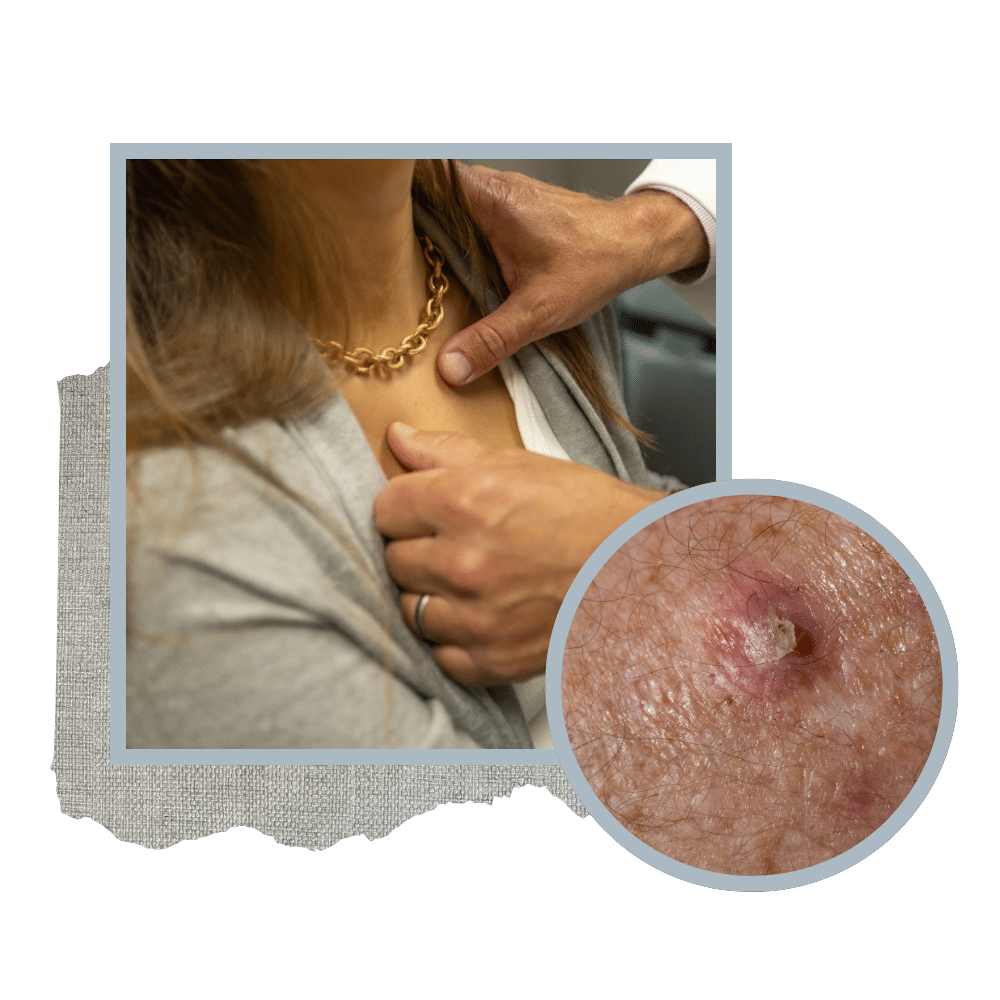
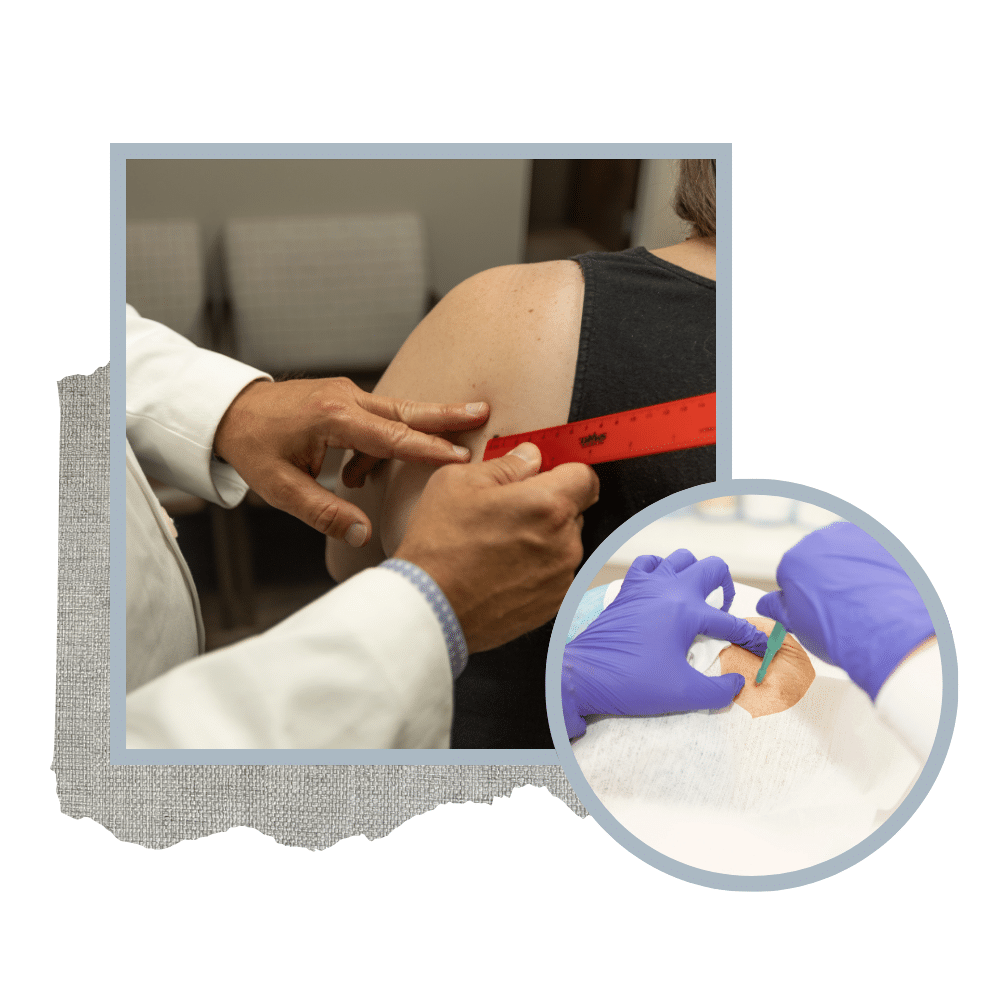
How is
Skin Cancer Diagnosed?
If you notice a suspicious skin change, a dermatologist can perform:
- A Skin Examination: A visual inspection of abnormal spots or moles.
- A Skin Biopsy: A small sample is taken and tested for cancer.
- Imaging Tests: In advanced cases, scans may be used to check if cancer has spread.
The sooner skin cancer is diagnosed, the easier it is to treat!
Prevention
Skin Cancer prevention and Reducing Recurrence
Even after successful treatment, you should take steps to prevent recurrence.
- Use Sunscreen Daily – SPF 30+ is a must.
- Avoid Peak Sun Exposure – 10 AM - 4 PM is the riskiest time for UV damage.
- Wear Protective Clothing & Hats – Reduce direct sun exposure.
- Say No to Tanning Beds – UV radiation from tanning beds increases cancer risk.
- Regular Skin Exams – A dermatologist should check your skin annually for early signs of recurrence.


Skin Cancer Treatment
When to See a Dermatologist
Warning Signs of Skin Cancer:
- A mole that changes in size, shape, or color.
- A sore that won’t heal after several weeks.
- New, unusual skin growths that don’t go away.
If you’re experiencing any of these symptoms, don’t wait.
Early detection saves lives!
Book a Skin Cancer Treatment Consultation Today
At Franks Dermatology, we specialize in expert skin cancer screening and treatment for all ages.
gain confidence with healthy skin
How Franks Dermatology Can help
At Franks Dermatology, we provide a holistic approach to skin cancer treatment:
- Personalized Diagnosis: Identifying the type and severity of skin cancer.
- Tailored Treatment Plans: Combining assessment methods, prescription treatments, surgery, lifestyle guidance, and patient education.
- Ongoing Support: Regular check-ins to monitor progress and adjust your plan as needed.
Our goal is to help you achieve healthier skin.
Don’t let the possibility of skin cancer keep you from seeking treatment.
At Franks Dermatology, we offer expert skin cancer screening and treatment to help you identify and manage skin cancer. Contact us today to schedule your screening!


Skin Cancer Treatment
in little rock, arkansas
Living in Little Rock, Arkansas, presents unique environmental risks for skin cancer:
- Higher Sun Exposure & UV Index:
- Arkansas experiences hot, sunny summers, with UV levels that can be high for much of the year.
- Longer outdoor activity seasons (gardening, fishing, hiking, sports) increase cumulative sun exposure, leading to higher skin cancer risks.
- Higher humidity and heat may also contribute to increased sunburn risk if people don’t reapply sunscreen effectively.
- Outdoor Lifestyle: Arkansas has many outdoor recreational areas (Ozark Mountains, lakes, hiking trails), meaning residents may unknowingly increase UV exposure year-round.
- Farming & Outdoor Work Exposure:
- Agricultural and construction workers in Arkansas often have long-term, unprotected sun exposure, increasing the risk of non-melanoma skin cancers (Basal Cell and Squamous Cell Carcinoma).
- This makes preventative dermatology screenings and early intervention even more crucial in the region.
Our team is familiar with these regional factors and incorporates them into your treatment plan.
"There is not a better dermatologist. I am 70 years old and first had skin cancer at 28. I have not had even one recurrence since I have been seeing Dr Franks. He catches everything before it becomes a problem. As a bonus, his staff is both friendly and professional."
- Michael Oldner, Little Rock, AR
Frequently Asked Questions
about skin cancer screening & skin cancer treatment
What is the most effective skin cancer treatment?
Mohs surgery is the most precise and effective treatment for BCC and SCC. Melanoma treatment depends on how advanced it is—early-stage cases are often cured with surgery, while later stages may require immunotherapy or targeted treatments.
Does skin cancer treatment leave scars?
Can skin cancer come back after treatment?
How long does recovery take?
Skin Cancer Articles
Risk Factors for Merkel Cell Carcinoma
Risk Factors for Merkel Cell Carcinoma Merkel cell carcinoma is one of the most aggressive forms of skin cancer due to its rapid growth and potential for metastasis. Knowing the factors that could increase its occurrence is a key step in defending your skin’s health. What Are the Risk Factors for Merkel Cell Carcinoma? These…
Read ArticleWhy is Merkel Cell Carcinoma Skin Cancer So Dangerous?
Dangers of Merkel Cell Carcinoma Merkel cell carcinoma is a very rare type of skin cancer—but it’s also one of the most aggressive. What is Merkel Cell Carcinoma Skin Cancer? Merkel cell carcinoma (MCC) is named after the Merkel cells, which are located at the base of the outermost layer of the skin. Merkel cells…
Read ArticleAre There Treatments for Skin Cancer Besides Surgery?
Treatments for Skin Cancer Surgical interventions have long dominated the treatment of skin cancer. However, there are also several non-surgical treatments for skin cancer that have developed as the medical world has learned more about this complex condition. Topical Treatments for Skin Cancer Also known as chemotherapy cream, topical treatments for skin cancer are applied…
Read ArticleWhen Do You Need Surgery for Skin Cancer?
Surgery for Skin Cancer Skin cancer has layers of complexity that can affect a dermatologist’s approach in terms of diagnosis and treatment. One of the most commonly asked questions about skin cancer treatment is whether or not a patient will require surgery. Although the answer ultimately requires a doctor’s consultation, here are some general guidelines…
Read ArticleWhat Happens During a Skin Cancer Biopsy?
Skin Cancer Biopsy Picture this: you notice a suspicious spot on your skin—a freckle that has changed in shape, a mole that looks irregular, or a lesion that doesn’t seem to heal. You schedule an appointment with a healthcare professional. After a thorough examination, they suggest a skin cancer biopsy. But what exactly does that…
Read ArticleCommon Skin Biopsy Procedures to Detect Cancer
Skin Biopsy Procedures Skin cancer affects millions of people globally, as well as countless loved ones and partners who accompany them on their journey. Because of the potentially significant consequences, it is critical that they be addressed swiftly and correctly. To achieve that result, precise skin cancer detection and therapy rely primarily on skin biopsy…
Read Article








